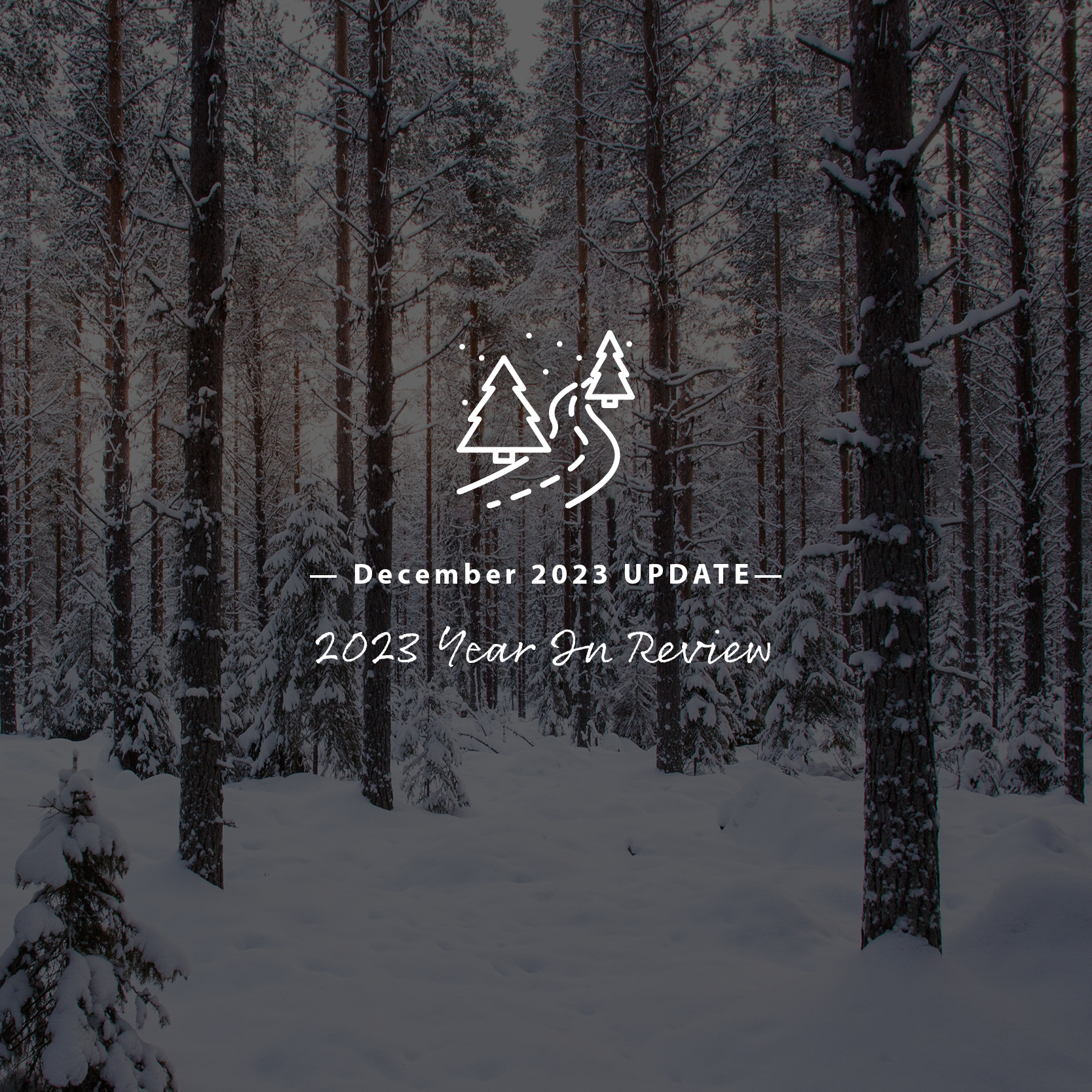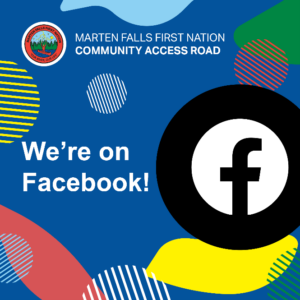Marten Falls First Nation (MFFN) Community Access Road
November / December E-Blast 2023
Current and upcoming activities
Welcome to the Marten Falls First Nation (MFFN) Community Access Road December 2023 E-Blast with updates on current and upcoming activities.
This E-Blast features:
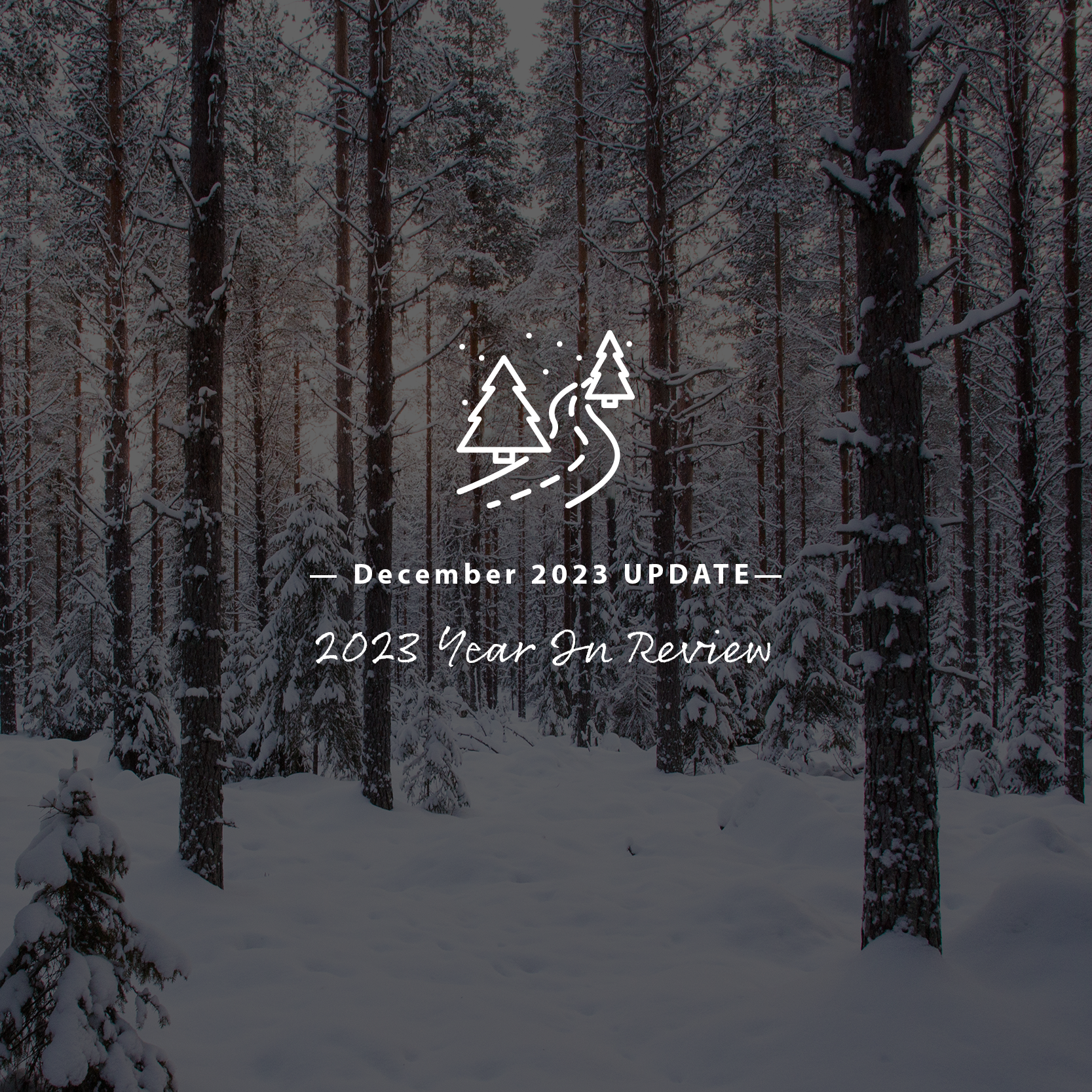
Greetings on the Holidays!
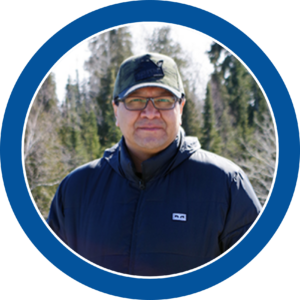
“For as long as I can remember, Marten Falls First Nation (MFFN) has had a strong desire to develop a road that would connect our remote northern community to the Ontario provincial highway network and advance our vision of building a sustainable and thriving community in the North.”
— Chief Bruce Achneepineskum, From Leading our own prosperity: What are we doing in our territory? Northern Ontario Business (2023, September 28)
2023 Highlights
As we reflect on the past year, 2023 has been marked by significant milestones for the Community Access Road. A highlight of our journey has been the continued collaboration with Indigenous communities and the public, culminating in sharing early findings of the Existing Conditions Reports and presenting the Preliminary Technically Preferred Route Recommendation at Public Information Centre #5 in October.
As we bid farewell to this year, we extend our heartfelt gratitude to all those who have shown unwavering interest and active participation in the Community Access Road. We are especially thankful for the profound insights shared by Marten Falls First Nation and surrounding Indigenous communities. Your perspectives have been instrumental in shaping our decisions throughout the planning process.
Looking ahead to the upcoming new year, we anticipate continuing this collaborative journey. Your ongoing engagement remains essential, and we are excited to build upon the positive momentum together and are enthusiastic about the possibilities that 2024 holds.
Here are some key highlights from 2023:
- Public Information Centre #5 (PIC#5): Existing Conditions Report and Route Selection Milestone
In October, the Community Access Road Team visited Marten Falls First Nation, Thunder Bay, and Geraldton, to share significant milestones associated with the Environmental Assessment / Impact Assessment process and present the Preliminary Technically Preferred Route Recommendation.The visit served as a platform to foster face-to-face conversations, creating a space where the team could genuinely listen and receive direct feedback on the Community Access Road. This engagement was not just about information sharing but also about building a meaningful dialogue with the community.Stay tuned for upcoming opportunities to meet and further the discussion in the upcoming new year. Your insights and feedback are crucial elements of this ongoing engagement, and we remain committed to strengthening our collaborative efforts to ensure the success of the Community Access Road. Click HERE to find all the documents and learn more about PIC#5.
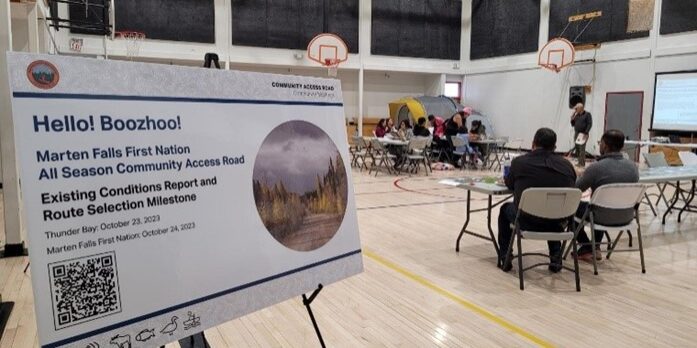
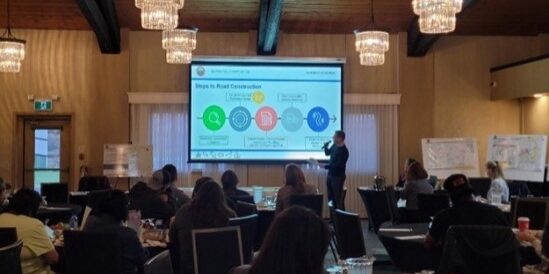
- Preliminary Technically Preferred Route Recommendation
The Project team presented the Preliminary Technically Preferred Route to MFFN community members, other Indigenous communities and the public in October. Feedback received at these engagements has since been incorporated into the route recommendation along with inputs from the Indigenous Knowledge program.As we move into 2024, we look forward to finalizing the Route Selection. View the Preliminary Technically Preferred Route Recommendation map HERE.
- Aboriginal and / or Treaty Right and Interests Forum The Aboriginal and / or Treaty Rights and Interests Forum took place in February and November this year in Thunder Bay. The purpose of the Forum was to create a respectful and collaborative space to develop and / or confirm our understanding of the study areas for the Community Access Road as Aboriginal and / or Treaty Rights and Interests may be impacted by the road. Representatives of the Province of Ontario and other road projects in the area were present as well.
The Community Access Road Team is currently engaging with 23 Indigenous communities, including Marten Falls First Nation, who may have Aboriginal and / or Treaty Rights and Interests that have the potential to be adversely impacted by the road and this engagement will continue throughout the Environmental Assessment / Impact Assessment process.
Further details can be found here: https://www.martenfallsaccessroad.ca/indigenous-knowledge-program/
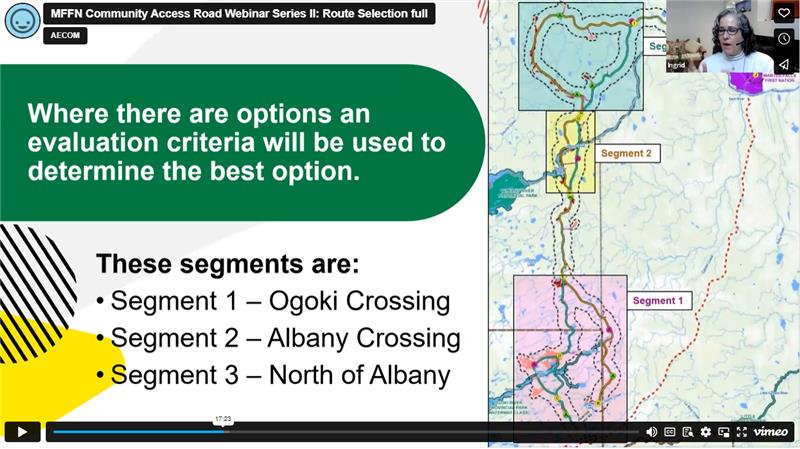
- The Community Access Road Webinars Series: We started a new Webinar Series this year to unpack the valued components we are studying in the Environmental Assessment / Impact Assessment. Live webinars were held on a variety of topics including Archaeology and Cultural Heritage, Peatlands, and Wildlife to name a few.
All 12 webinars can be viewed HERE.A second webinar series that looks at some of the more technical aspects of the road started in late 2023 and will continue in 2024. The webinar on the Route Selection process can be viewed HERE and the next three webinars will begin in early 2024, and will discuss Climate Change, Cumulative Effects, and Engineering and Construction.
Check the Get Involved page for upcoming date announcements and registration information.
- Field Studies Field programs are happening to better understand the existing conditions of the local environment and the potential effects of the Community Access Road Project on the social, cultural, economic, built and natural environments. The field programs that took place this year include: Archaeology and Cultural Heritage; Peatlands; Physiography; Birds; Reptiles; Socio-Community Studies; and Human health and Community Safety. Highlights of 2023 field programs can be found below!
- Valued Component Videos
We love to share what we have learned from our studies for the Community Access Road and have created several videos in 2023 describing the valued components we are studying as part of the Environmental Assessment and Impact Assessment. Videos on Peatlands, Socio-Economic Studies, Archaeology and Cultural Heritage, Birds, Reptiles, and others can be found on our Multimedia page HERE
.

2023 Field Study Summaries
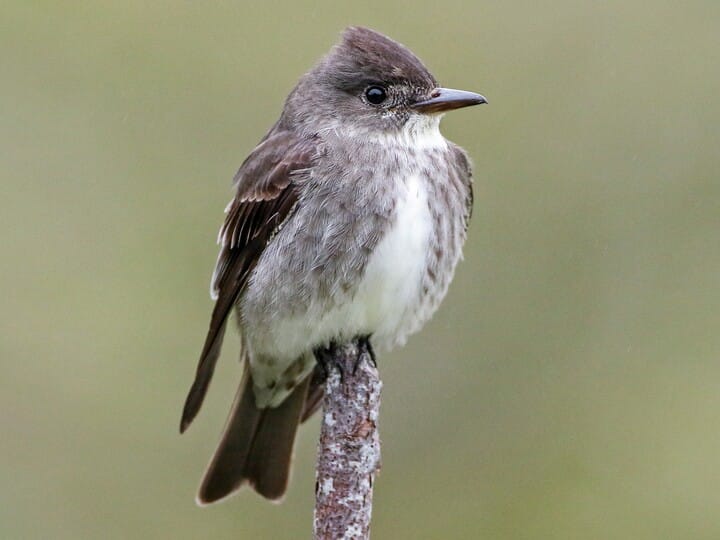
Birds
Autonomous recording units recorded data about birds in the study area until January 2023, after which point field crews collected the autonomous recording units. Autonomous recording units are devices that record the sounds of birds and help researchers to identify the types of birds living in the region, as well as the distribution and abundance. Across all different types of bird field studies, researchers found:
- 64 species of forest birds (i.e., songbirds, woodpeckers, hummingbirds, etc.);
- 15 species of raptors (i.e., owls, eagles, hawks, etc.);
- 11 species of shorebirds (i.e., sandpipers, snipes, killdeer, greater yellowlegs, etc.);
- 25 species of waterfowl and waterbirds (i.e., waabihssi / swans, ducks, and geese etc.);
- 15 species of wetland birds (i.e., rails, cranes, flycatchers, blackbirds, etc.); and,
- 18 species of other land birds (i.e., andaag / ahahjih / crows, kakakih / ravens, larks, kingfishers, whip-poor-wills, etc.).
Wildlife
Wolverine hair snag traps were baited in the study area to help understand wishkobishag / wolverine demographics (male / female). Remote cameras monitored the baited hair snag traps to help confirm if a wolverine had visited the hair snag trap, and field crews returned regularly to re-bait the traps. In 2023, 121 hair samples were collected from the hair snag traps. Researchers are awaiting lab analysis to confirm the species, sex, and individual DNA profile (to determine they are all unique wolverines). Wolverine den surveys were also carried out to identify their dens in order to avoid disturbing them while carrying out other field programs (i.e., groundwater).
Furbearer winter track surveys were conducted to determine the types of furbearers within the local study area, as well as the distribution, abundance, and density. In total, 502 individual tracks were observed, including:
- 176 fisher ojiigwag / American marten tracks;
- 96 waboozog / snowshoe hare;
- 31 atigwag / woodland caribou;
- 25 zikosihwag / undifferentiated weasel species;
- 17 ajidamog / red squirrel;
- 13 maihganang /gray wolf;
- 7 moozoog / moose;
- 5 nigigwag / river otter;
- 2 waakoshag / red fox; and,
- 2 mizhih'bizhiwag / Canada lynx.
The Wildlife Program is now complete.
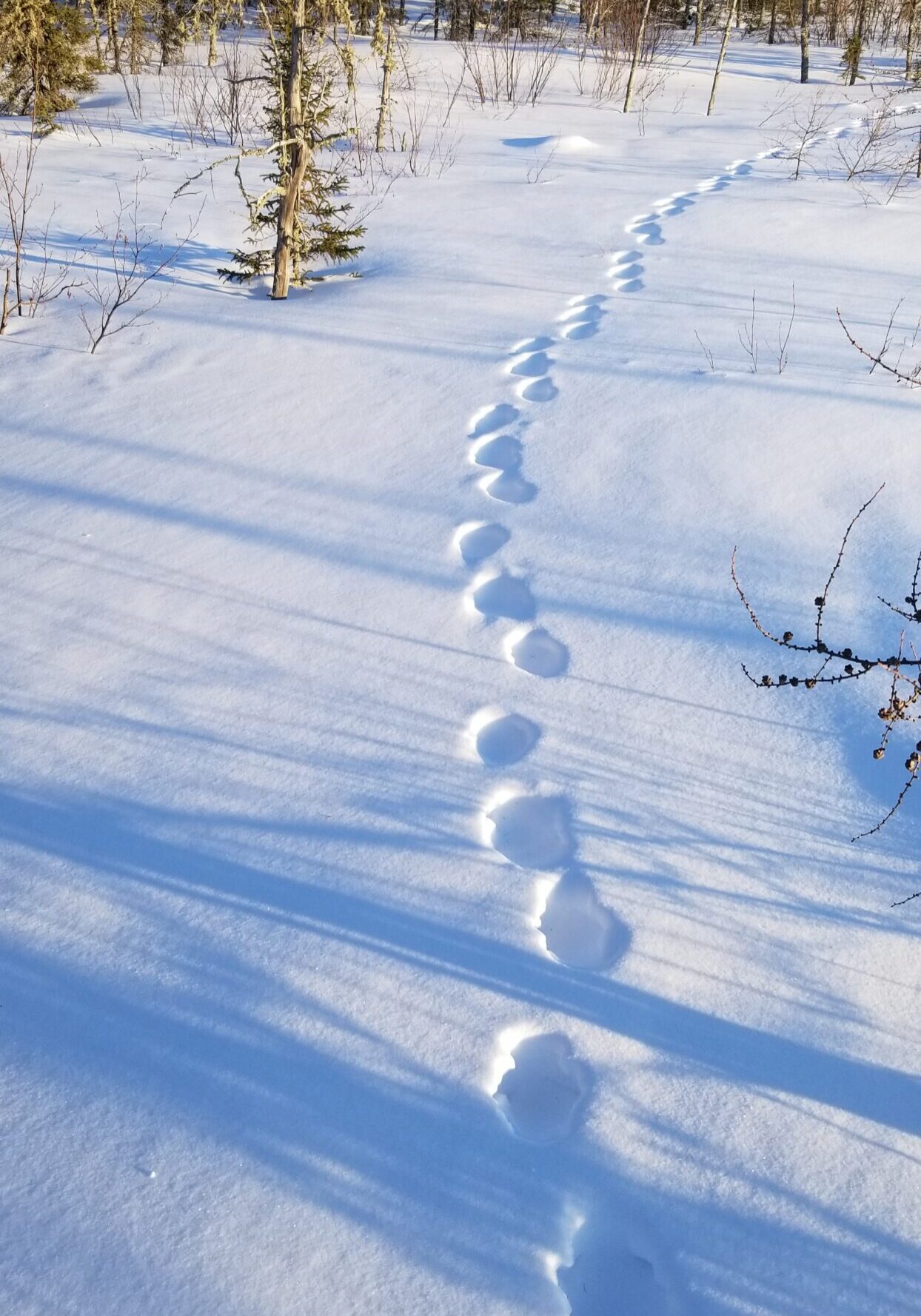
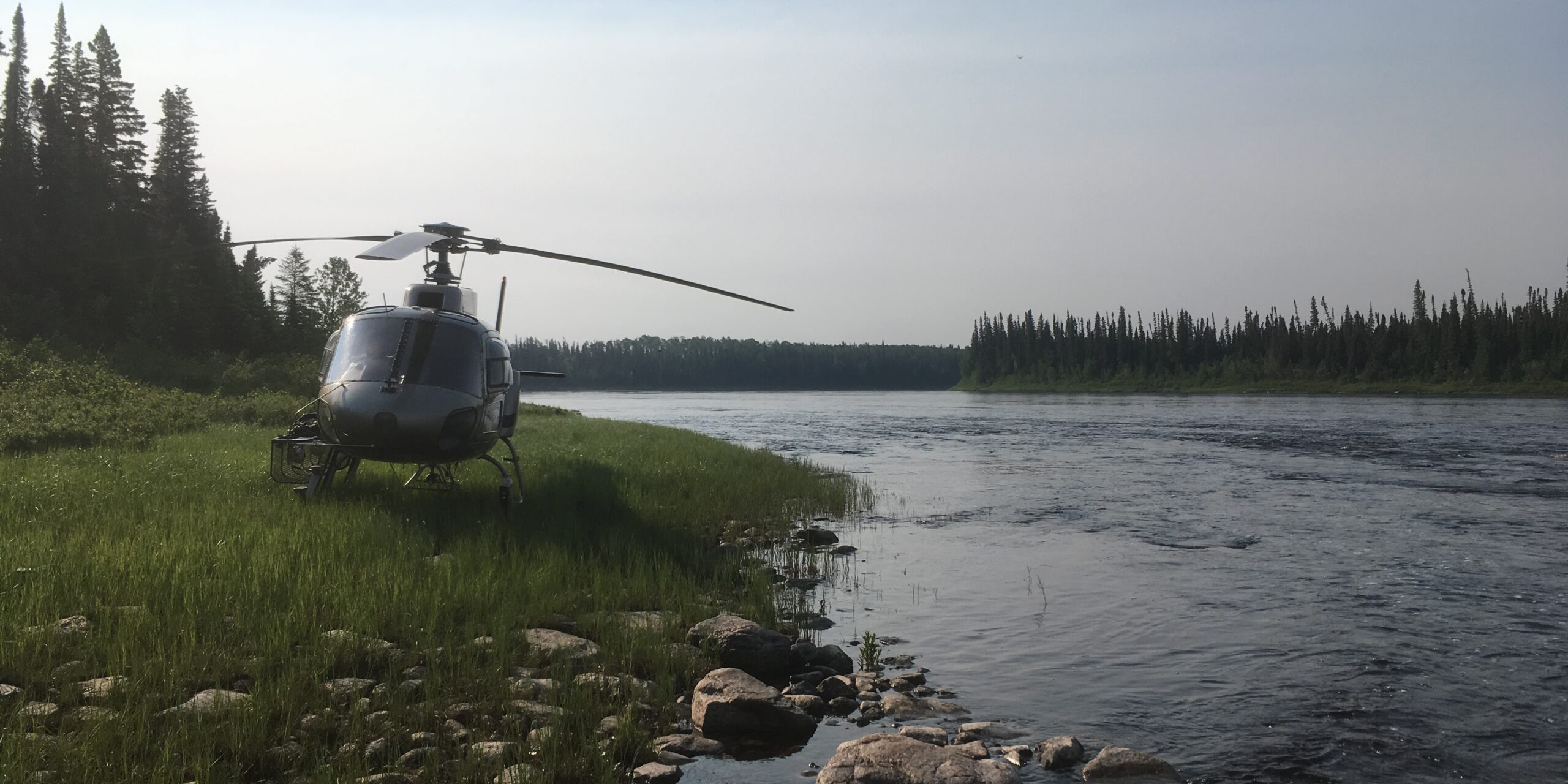
Ungulates
In February, surveys were conducted using a fixed wing aircraft and helicopter to gather information on the population and distribution of atigwag / caribou, to search for collared and uncollared groups of caribou, to identify number of calves with caribou groups in the study area, and to observe signs of other wildlife in the study area. In total, researchers spotted 457 caribou, and 47 moose during aerial surveys in 2023.
Additionally, field crews collected remote cameras that captured important information on the presence and seasonal patterns of atigwag / caribou, moozoog / moose, maihgan / wolves, and other wildlife.
On an as-needed basis, field crews also investigated atigwag / caribou mortalities that had occurred over the course of the year on animals that were wearing collars. The mortality investigation included determining the cause of death of the animal (e.g., predation, hunter, natural causes) and collecting the collar from the field. Over the course of 2023, field crews conducted three atigwag / caribou mortality investigations and determined that one was human-related, one was from natural causes, and one is still unknown.
Groundwater and Geochemistry
The groundwater and geochemistry program were continued from previous years. Monitoring wells were sampled in the spring, summer, and fall, and will continue to be sampled into 2024. Results are currently undergoing analysis.
Vegetation and Peatlands
Field crews observed plant communities and wetland areas throughout the study area to better understand potential effects that the proposed Community Access Road may have on plants, such as wabakamik / reindeer lichen, oshabomin / goose berry, wadopatik / speckled alder, and peatlands. Field crews observed areas from the air in helicopters, and on the ground. Results from these surveys are forthcoming.
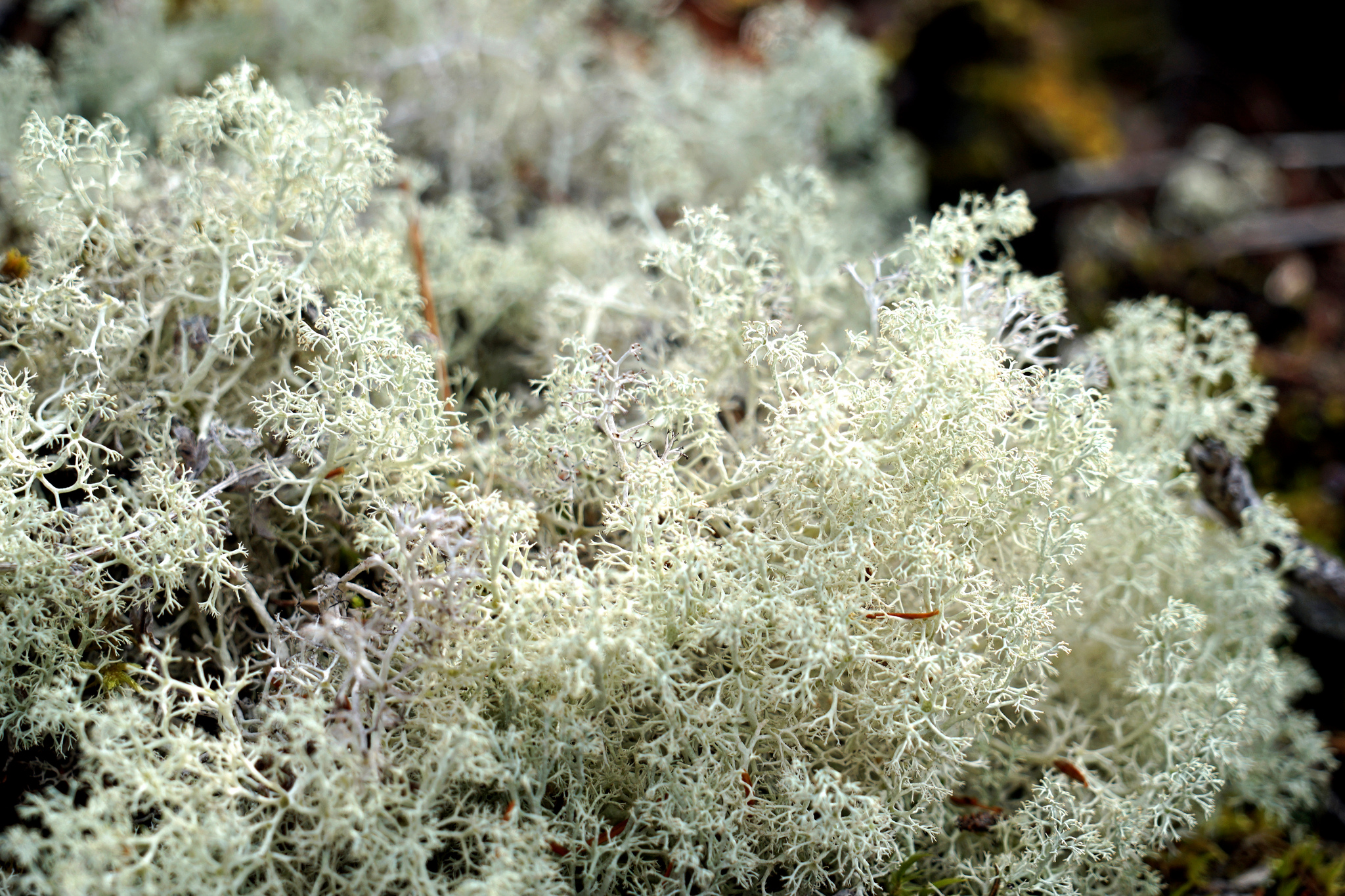
Upcoming Winter Field Studies
Field Studies will continue in 2024. The following programs will occur between February and May 2024, with exact dates being provided once confirmed:
- Caribou Collaring and Mortality Investigation Program
In 2021, 30 radio tracking collars were placed on caribou within the Local Study Area. The radio tracking collars have been collecting information about the seasonal migration of caribou throughout the region over the past three years and are timed to automatically fall off in February 2024; any collars that do not fall off as intended will be manually removed and retrieved by researchers in the spring of 2024.
The mortality investigation will involve determining a cause of death for any caribou lost over the fall / winter season (e.g., predation, hunting, natural causes). A field notice with the details of this program will be published in January 2024.
To learn more about field programs and the studies taking place to support the planning of the Community Access Road, check out the existing conditions reports and field program notices, valued component videos and past webinars.
*Timelines and programs are approximate and may shift; we will provide updates as required.
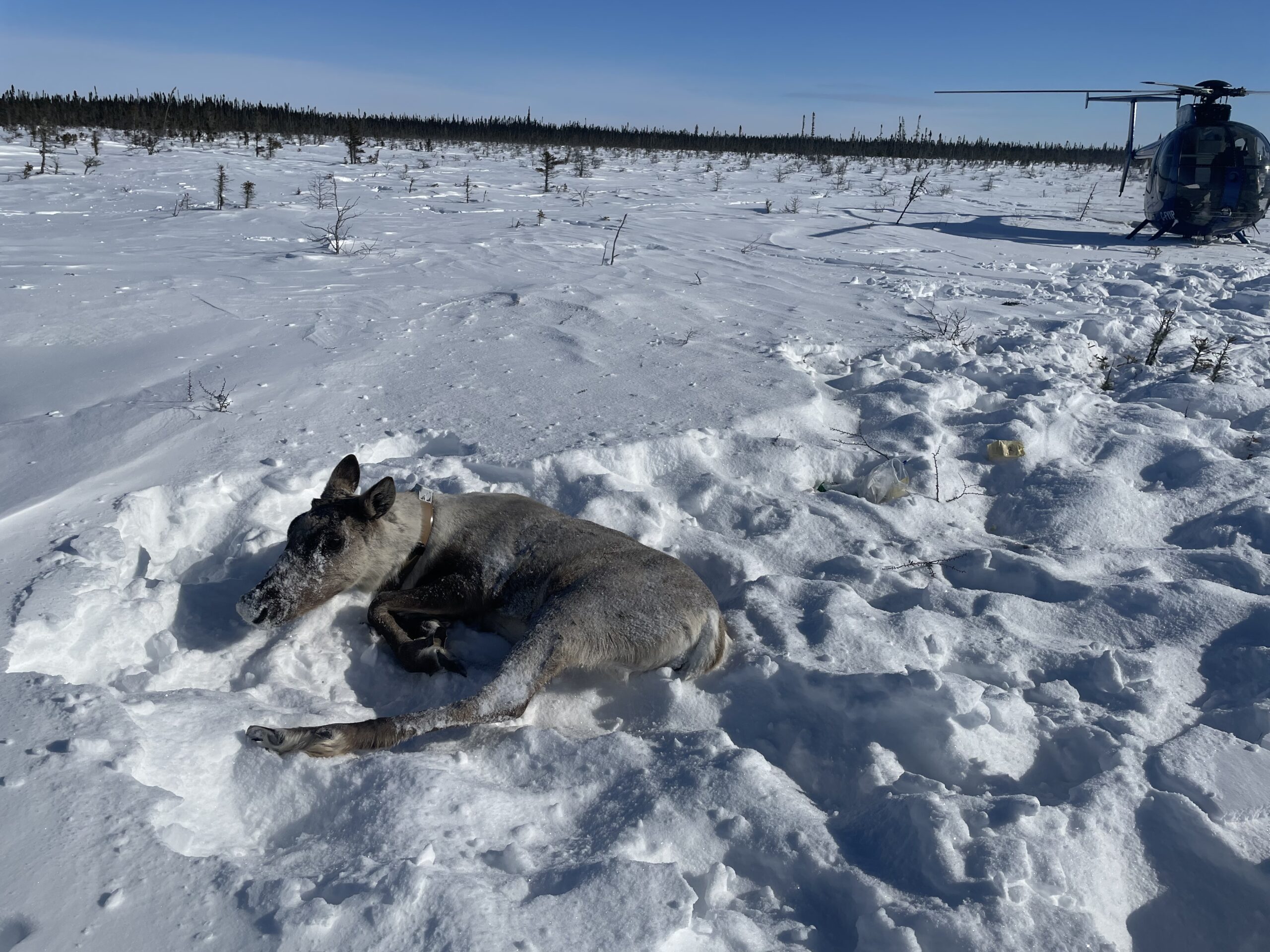
We Value Your Feedback
Please contact us at any time with questions or comments, or to schedule a meeting. Meetings can be arranged in-person in any community, in the Thunder Bay area, or online. We want to hear what you have to say!
Questions or comments? Contact us at 1-800-764-9114 or info@martenfallsaccessroad.ca.

